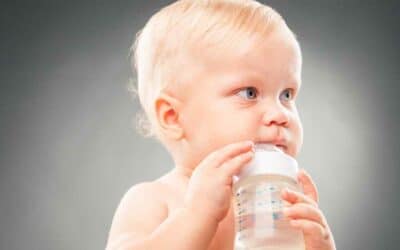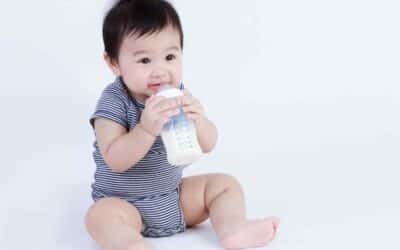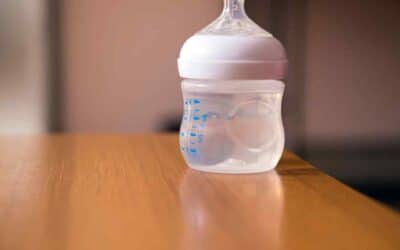Welcoming a new baby into the family is an exciting and challenging time for parents, especially when it comes to ensuring the little one’s health and safety. One key aspect of nurturing a healthy infant is providing the appropriate type and quality of water, which plays a crucial role in their growth and development.
In this article, we will delve into the various options available for parents, discussing the pros and cons of each and offering expert insights to help you make an informed decision. From tap water to filtered, spring to distilled, it’s essential to understand the differences between these sources and how they may impact your baby’s well-being. So, let’s dive in and explore the wonderful world of water and how it can contribute to the thriving growth of your little one.
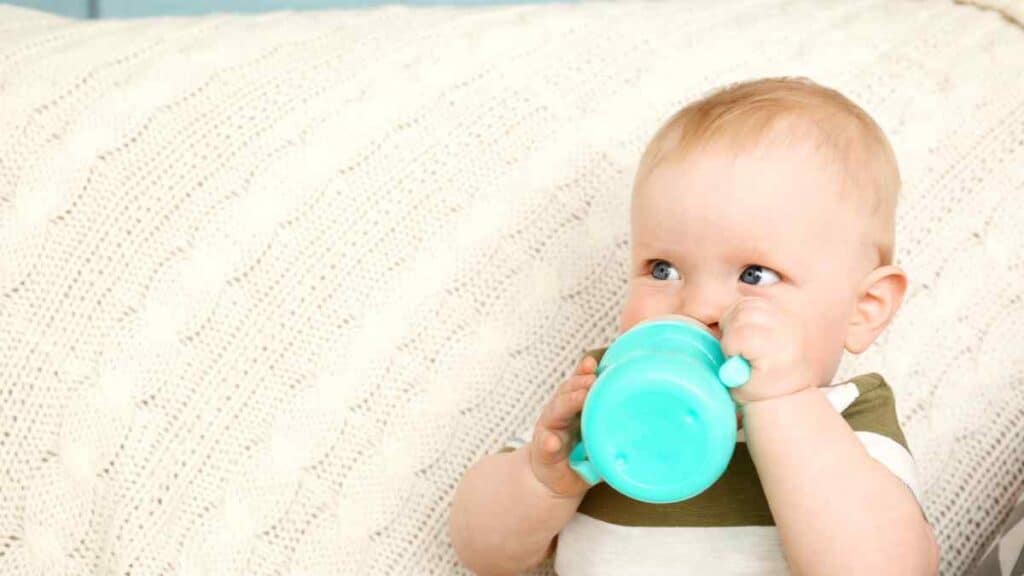
How to Use Water to Mix Formula
When it comes to feeding your baby, ensuring the right mix of water and formula is essential for their growth and development. With various types of water available, many parents may feel overwhelmed when choosing the best option for their baby’s formula. In this column, we will discuss the different types of water suitable for mixing infant formula, the importance of low-fluoride bottled water, and the best practices for formula preparation.
The World Health Organization (WHO) and the Centers for Disease Control (CDC) both recommend using safe water for mixing baby formula, as water quality can affect the nutrition and safety of the prepared formula [1]. Here are some types of water you can use to mix infant formula:
- Bottled water: If you’re unsure about the quality of your tap water or if it’s not properly treated, opt for bottled water when preparing your baby’s formula. Make sure to check the label for low fluoride levels, as too much fluoride can cause dental issues such as faint white lines on your baby’s teeth.
- Low fluoride bottled water: Some bottled water brands specifically market their product as “low fluoride” or “baby water,” making them ideal for mixing with infant formula. The World Health Organization recommends using water with fluoride levels below 0.01 mg/L for babies up to six months old.
- Tap water: If your tap water meets the appropriate safety standards, you can use it to prepare infant formula. However, be cautious if your area has high fluoride levels in the water supply. Boiling tap water can help reduce the concentration of certain contaminants but will not remove fluoride.
- Distilled water: This type of water undergoes a purification process that removes minerals and impurities, making it an excellent choice for mixing with baby formula. However, distilled water for babies lacks minerals that can be beneficial for your baby, so it’s essential to ensure that the infant formula you’re using provides all the necessary nutrients.
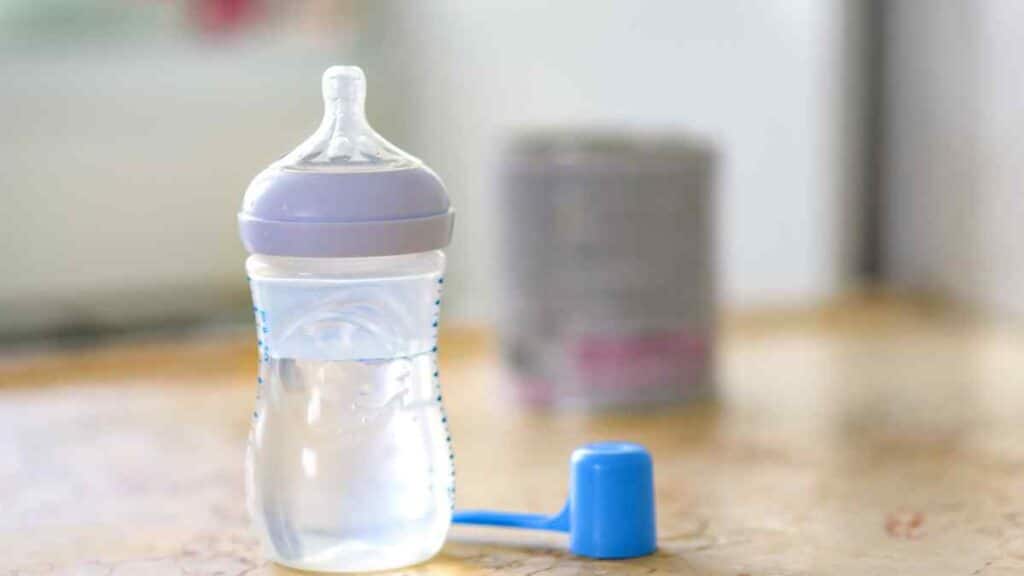
When preparing your baby’s formula, follow these steps for a safe and nutritious meal:
- Boiling water: Regardless of the type of water you choose, it’s crucial to boil it before mixing it with powdered formula. Boiling water helps eliminate any harmful bacteria or contaminants that may be present. Allow the water to cool to room temperature before adding the formula powder.
- Mixing infant formula: Follow the manufacturer’s instructions on the formula packaging for the correct ratio of water to powder. Use a clean, sterilized bottle and shake well to ensure that the formula is thoroughly mixed.
- Testing the temperature: Before feeding your baby, test the prepared formula’s temperature by placing a few drops on the inside of your wrist. It should feel lukewarm, not too hot or too cold.
- Storing prepared formula: If you need to store prepared formula, do so in a clean, covered container in the refrigerator. Use it within 24 hours, and discard any unused portions.
Primary Types of Water Sources for Babies
As a parent, it is crucial to ensure the health and safety of your baby, and one significant aspect of this is choosing the right water source for them. This column will provide an overview of the primary types of baby water sources, including tap water, filtered water, spring water, distilled water, and low-fluoride bottled water.
Tap water
Tap water is a readily available and convenient option for mixing infant formula. However, it is essential to ensure that the tap water in your area is safe for consumption. The Centers for Disease Control and Prevention (CDC) recommends using fluoridated water to prepare infant formula. However, you need to remember that while fluoride is essential for dental health, too much fluoride can cause dental fluorosis [1]. If you are concerned about the fluoride content in your tap water, you can check with your local water authority.
Filtered water
Filtered water is another option for preparing your baby’s prepared formula. This type of water has been filtered through a process that removes impurities and contaminants. Choosing a filtration system that effectively removes contaminants while retaining essential minerals is important. Filtered water is ideal for mixing baby formula, as it retains the benefits of tap water while providing a cleaner taste.
Spring water
Spring water is sourced from natural springs and is known for its mineral content. However, not all spring water is suitable for babies. When selecting spring water for your baby’s formula, look for low-fluoride bottled water to avoid the risk of too much fluoride.
Distilled water
Distilled water is the purest form of water, as it has been processed to remove all impurities and minerals. Can babies have distilled water? Yes, distilled water is safe for babies, but it lacks essential minerals found in other water sources. While it can be used to mix infant formula, there may be better options in terms of taste and mineral content.
Bottled water
Bottled water is another alternative for your baby’s prepared formula. When choosing bottled water, it is essential to look for low-fluoride options, as too much fluoride can harm your baby’s developing teeth. Be cautious, though, as some bottled water may contain a high sodium level, which is unsuitable for babies.
Regardless of the water source you choose, it is essential to follow the instructions on the powdered formula packaging to avoid water intoxication. Boiling water can also help eliminate potential contaminants; however, it is crucial to cool it to the appropriate temperature before mixing it with the formula. Always consult your pediatrician for personalized advice on the best water source for your baby’s needs.
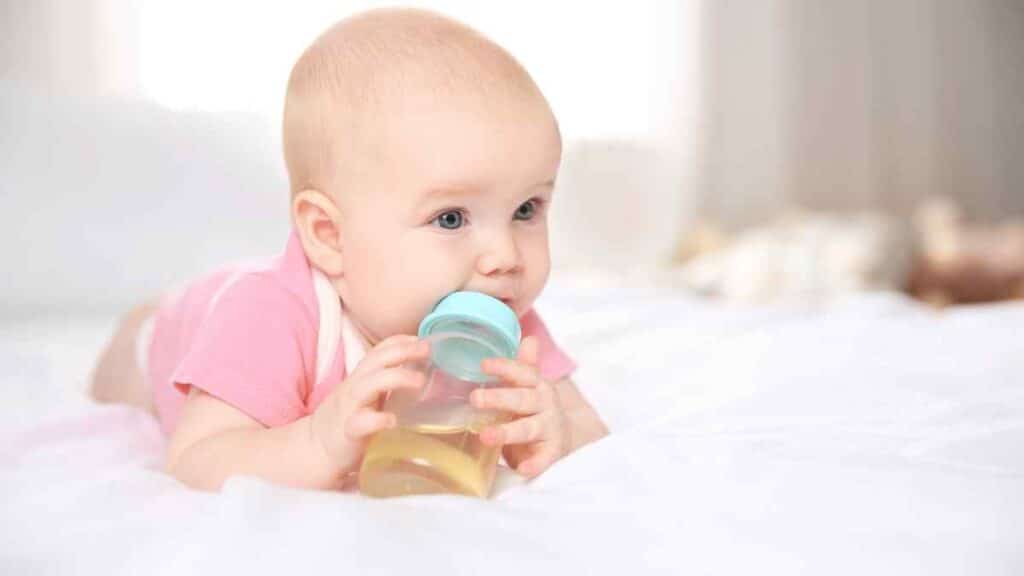
When to Boil Water
After exploring the primary types of water sources for babies in the previous column, it is essential to understand when and why boiling water is necessary for preparing infant formula. Boiling water helps eliminate potential contaminants and ensures the safety of the water used to mix baby formula.
- Boiling tap water: While tap water is generally safe for consumption, there may be instances where boiling tap water is recommended. The Centers for Disease Control and Prevention (CDC) suggests boiling tap water for one minute if you are concerned about the presence of contaminants, especially if your baby has a weakened immune system or if there is a local water advisory. After boiling, allow the water to cool to room temperature before using it to mix the formula.
- Boiling bottled water: Although bottled water is often considered safe for drinking, there might be situations where boiling is necessary. If the bottled water is not labeled as “sterile” or if you are unsure about the water’s quality, it is advisable to boil it for one minute and then cool it to room temperature before using it to mix baby formula.
- Boiling water for babies under six months: For infants under six months of age, the American Academy of Pediatrics (AAP) recommends using boiled water to prepare infant formula. This is because their immune systems are not fully developed, making them more susceptible to illnesses caused by waterborne contaminants.
- Fluoride considerations: Boiling water does not significantly reduce the fluoride content in tap or bottled water. If you are concerned about fluoride levels in your baby’s formula, consult your pediatrician or consider using low-fluoride bottled water.
- Distilled vs. purified water: Distilled water and purified water are both suitable for mixing baby formula. Distilled water undergoes a process that removes impurities and minerals, while purified water is treated to remove contaminants. However, boiling is not necessary for these types of water, as they have already been treated to ensure safety.
Water Intoxication
While providing clean, safe water is essential for preparing baby formula, it’s also crucial to avoid water intoxication. This rare but serious condition can occur when babies consume too much water, leading to an imbalance of electrolytes in their bodies.
To prevent water intoxication, always follow the formula manufacturer’s instructions regarding the proper ratio of water to the powder, and avoid giving your baby additional water unless advised by a healthcare professional.
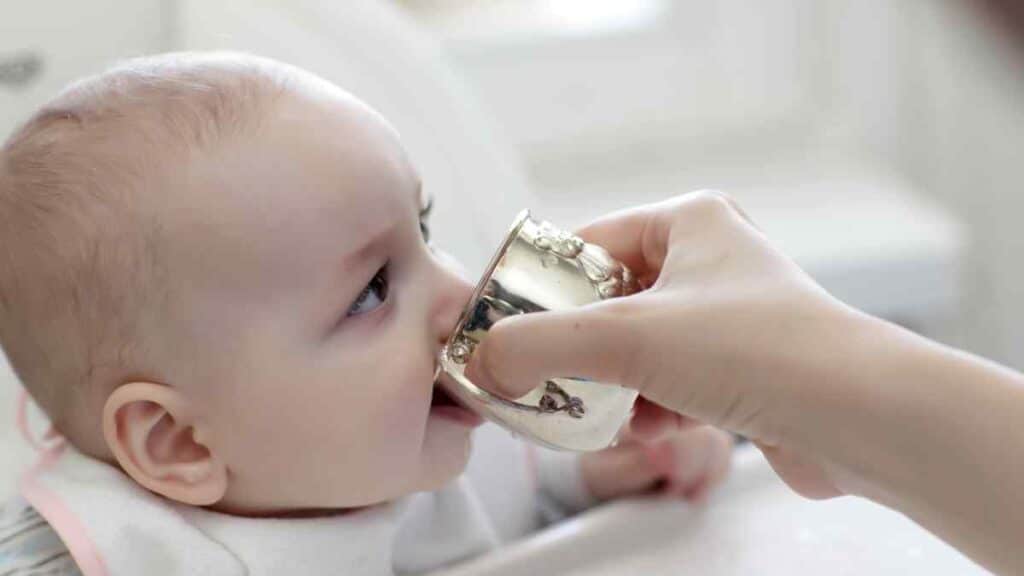
Fluoride and Baby Formula Preparation
Fluoride plays a vital role in maintaining dental health, but understanding how much fluoride is appropriate for your baby’s formula is crucial. In this column, we will discuss the importance of fluoride, its relationship with baby formula preparation, and how to ensure that your baby receives the appropriate amount.
Fluoride in drinking water
Fluoridated water is drinking water containing a controlled amount of fluoride, which helps prevent tooth decay. The American Academy of Pediatrics (AAP) and the World Health Organization (WHO) endorse the use of fluoridated water for baby formula preparation.
How much fluoride is safe?
While fluoride is essential for dental health, too much can lead to dental fluorosis, a condition that causes faint white lines or streaks on teeth. So, to avoid this, it is important to monitor the fluoride content in the water used to mix baby formula. Consult with your pediatrician or local water company to determine the fluoride levels in your tap water.
Choosing the right water for formula preparation
If the fluoride content in your tap water is too high, consider using low-fluoride bottled water, such as nursery water, or purified water to mix your baby’s formula. Be cautious when using distilled water when preparing cow’s milk formula, as it lacks essential minerals found in other water sources. When using any water source, always follow the instructions on the formula powder packaging to ensure the proper ratio of water to formula.
Dental fluorosis and monitoring fluoride intake
Only a dentist can diagnose dental fluorosis. If you are concerned about your baby’s fluoride intake, consult your pediatrician and dentist for personalized advice on the appropriate fluoride levels and any necessary adjustments to your baby’s formula, or get the water tested.
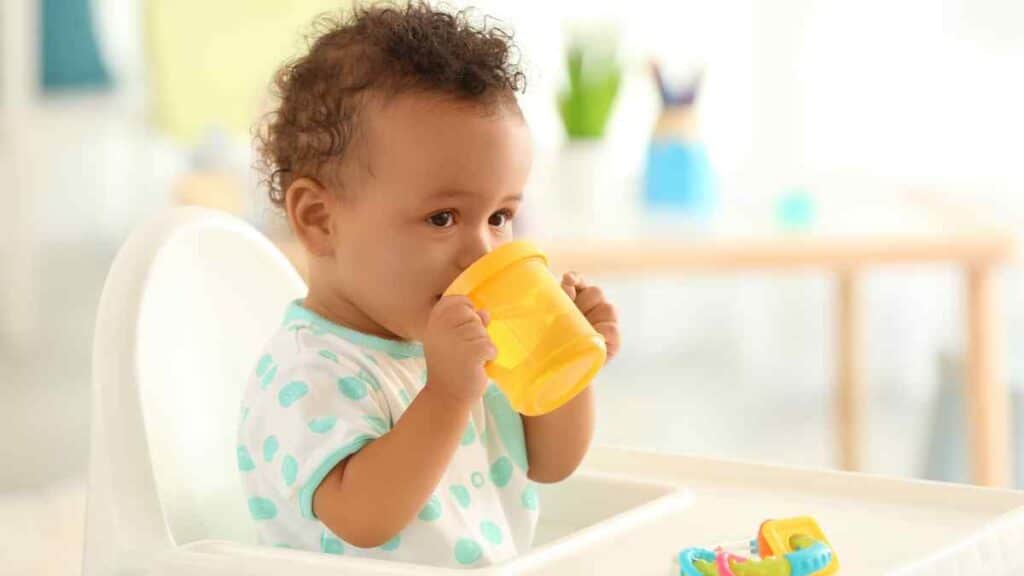
Conclusion
In conclusion, selecting the right kind of water for your baby is a critical aspect of their health and well-being, especially when mixing baby formula. As a parent, it is crucial to be well-informed about the various water options available, including tap water, filtered water, spring water, distilled water, and low-fluoride bottled water. Each type of water has its benefits and drawbacks, and understanding these differences will help you make the best decision for your baby’s formula preparation.
When preparing your baby’s formula, always follow the instructions on the powder formula packaging to ensure the proper ratio of water to formula and minimize the risk of water intoxication. Boiling tap water can help eliminate potential contaminants, such as lead exposure, but it is essential to cool it to body temperature before mixing it with the formula.
In addition to water safety, monitoring your baby’s fluoride intake is crucial to their dental health. Consult your pediatrician and dentist for personalized advice on the appropriate fluoride levels and any necessary adjustments to your baby’s formula or the need for fluoride supplements. By staying informed and working closely with healthcare professionals, you can provide your baby with the best possible start in life, ensuring their health, safety, and happiness.
Did this article help you? We’d love to hear from you! Have a question? Let us know in the comments and we’ll get back to you as soon as possible.

